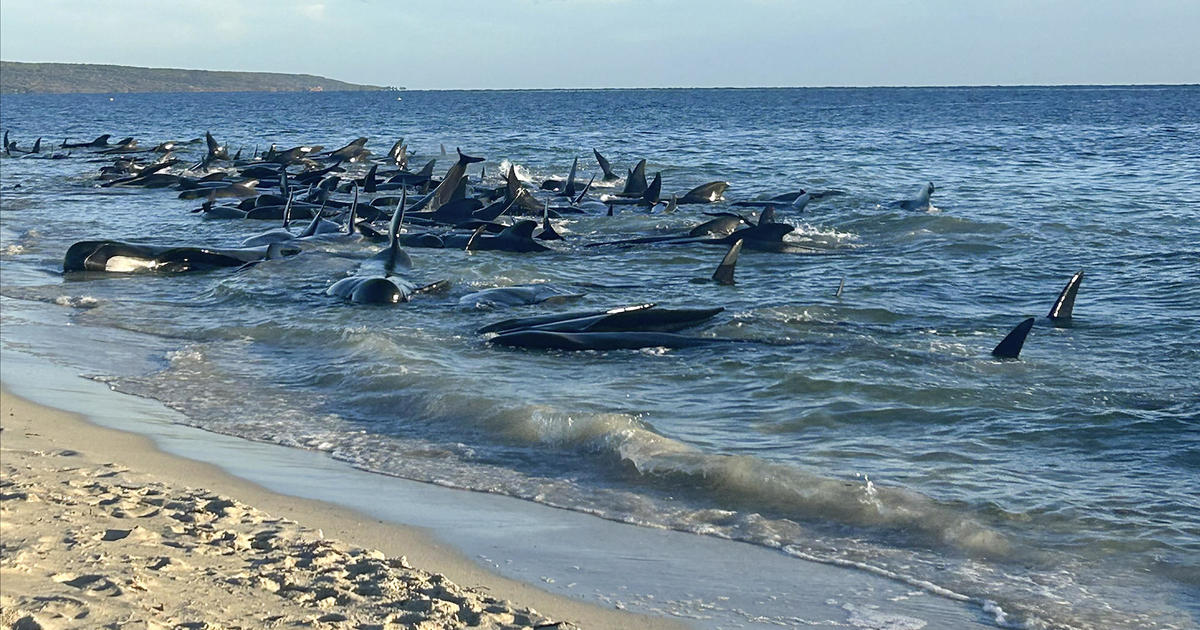Texas power grid asks users to conserve during blistering heat wave
On the cusp of summer, the electric power grid manager for most of Texas is asking users to dial back their energy consumption to avoid an emergency. It's the second conservation alert the grid operator has issued since a deadly February snowstorm that led to more than 100 deaths and bankrupted several power companies.
The Electric Reliability Council of Texas said power supply was low due to many forced generation outages and record June demand. It appealed to users to "reduce electric use as much as possible" by setting thermostats to 78 degrees or higher, unplugging unused devices and avoiding using large electric appliances, like pool pumps and washing machines, until demand decreased late in the day.
ERCOT predicted a peak demand load on its system of 73,000 megawatts, far above the June record of 69,123 megawatts set between 4 p.m. and 5 p.m. on June 27, 2018. However, as of 2:30 p.m., Monday, 12,178 megawatts of the grid's 86,862 megawatts of generating capacity was offline, ERCOT said, leaving a razor-thin margin of reserve capacity of about 2,000 megawatts.
Such a thin margin makes the grid "vulnerable to any sudden loss of generation or higher than predicted consumption," John Kemp, energy analyst at Reuters, said in a note.
"We will be conducting a thorough analysis with generation owners to determine why so many units are out of service," Woody Rickerson, ERCOT vice president of grid planning and operations, said in a statement. "This is unusual for this early in the summer season."
ERCOT spokeswoman Leslie Sopko said 9,066 megawatts of the idled capacity were from steam-powered generator units fueled by gas, coal or nuclear fission.
"We're currently seeing three to four times the number of forced thermal (steam-powered) generation outages on our system than we would typically expect to see this time of year," Sopko said in an afternoon telephone conference. "All of these thermal units are offline due to mechanical failure or the need for repairs," she said.
A megawatt usually powers about 200 homes on a summer day. Summer officially begins on Sunday.
Also, wind-powered generator output was producing 3,500 to 6,000 megawatts between 3 p.m. and 9 p.m. Monday, about 1,500 megawatts less than what is typically available for peak conditions, according to an ERCOT statement. Solar power was producing more than 5,000 megawatts, Sopko said.
"We want you to know that we share the same concerns of all Texans, and this is a priority to ensure that generators can perform as we head into the summer months," she added.
An island unto itself
The ERCOT grid is the only one in the nation contained completely within the borders of a single state. That exempts it from federal regulation, but it also isolates it from access to supplemental power from the nation's other power grids.
ERCOT officials had assured early last month that its latest assessment showed the grid was expected to provide sufficient power to meet peak summer demand. Still, it expected record-breaking demand for electric power that could mean tight supply reserve margins. ERCOT predicted a demand peak of 77,144 megawatts this summer.
Heat-index readings topped 100 degrees in much of Texas on Monday. ERCOT had already issued one conservation alert on April 13, when temperatures ranged from the 50s to the lower 80s.
Despite experts who say Texas' power grid remains vulnerable, Republican Governor Greg Abbott has declared that new reforms "fix all of the flaws" that caused a deadly February winter blackout.
More than 4 million people lost power when temperatures plunged into single digits over Valentine's Day weekend, icing power generators and buckling the state's electric grid. State officials say they have confirmed at least 151 deaths blamed on the freeze and resulting outages, but the actual toll is believed to be higher. Meanwhile, the storm's hit to Texas' economy rivals that of hurricanes Harvey and Ike.
Texas lawmakers made significant changes during the recent legislative session that included mandates to "weatherize" power plants for extreme temperatures and new processes to avert communication failures. However, energy experts have said the reforms do not go far enough to assure a similar catastrophe won't happen again in one of America's most booming states.



